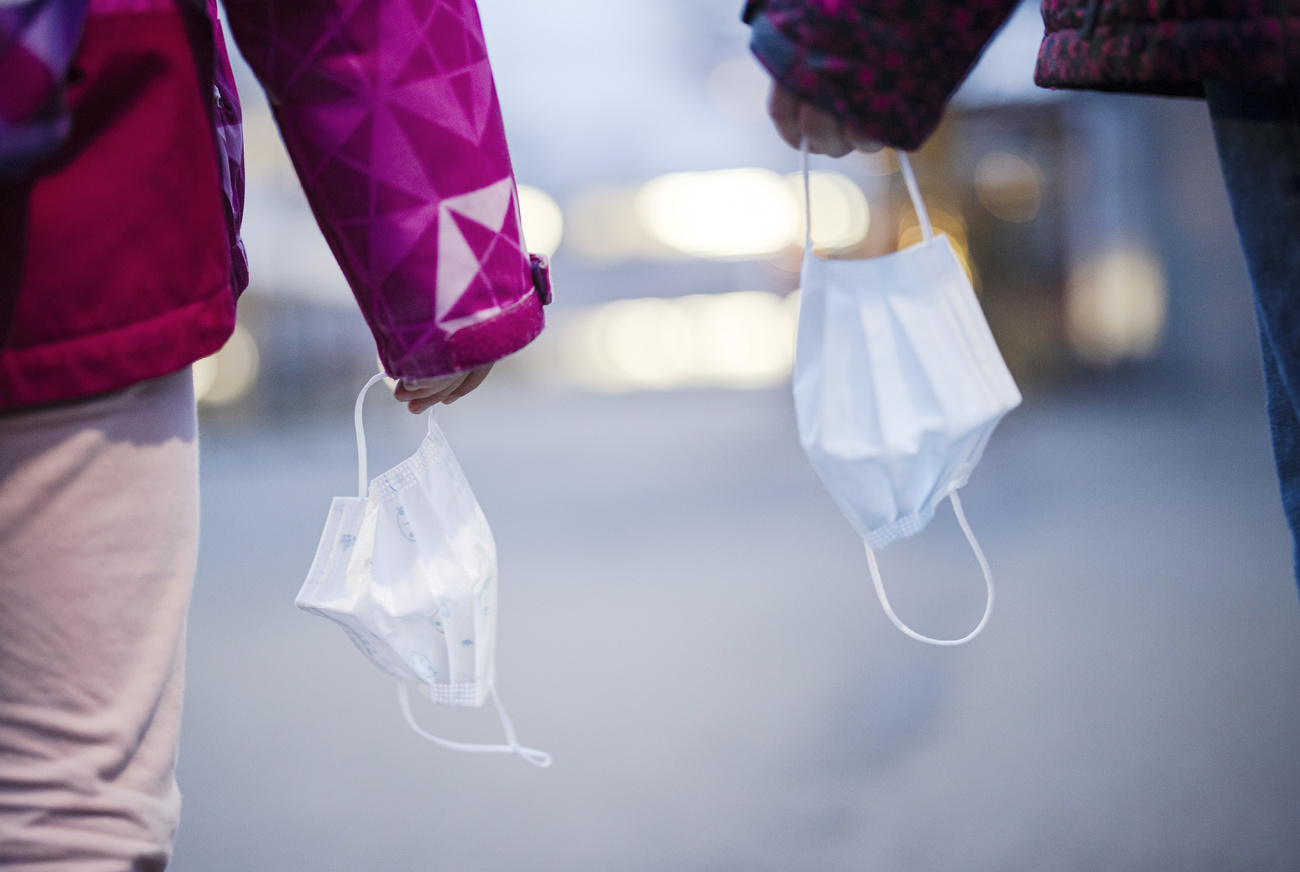
Covid research helped Swiss response, says Science Foundation

The National Science Foundation's CHF45 million ($45.8 million) support to Covid-19 research in Switzerland has made an important contribution to tackling the pandemic so far, it saidExternal link on Tuesday.
Despite high pressure and sometimes difficult working conditions, researchers have presented impressive results, said epidemiologist Marcel Salathé of the Federal Technology Institute Lausanne (EPFL) who chairs the steering committee of the National Research Programme “Covid-19”. This programme includes 200 researchers involved in 28 projects with a total of CHF20 million.
In the early phase of the pandemic, epidemiological and monitoring projects provided important findings on the transmissibility of the virus, mobility patterns of the population during the partial lockdown, and degree of acceptance of restrictions, which allowed the Swiss government to adapt its recommendations, says the Science Foundation.
Another early milestone was the development of an inexpensive mass test by EPFL researchers which made it possible for the first time to detect Covid-19-specific antibodies in broad population groups, including in kindergartens.
It says EAWAGExternal link wastewater monitoring, which measures the concentration of Covid-19 viruses in water bodies, was a “resounding success” and has now been extended to over a hundred sites.
Important findings in the biomedical field include effects of the virus on children, on the mental and cognitive health of adults, and recognition of Long Covid as a health problem that is still not sufficiently understood, according to the press release.
Results from tests on Covid-19 patients of drugs originally developed for other diseases were more mixed. Although there were some “successful approaches”, some studies were also discontinued “as the strategies pursued proved ineffective”, says the science foundation.
Ongoing research includes the development of new vaccines and a nasal spray vaccine for Covid-19.

In compliance with the JTI standards
More: SWI swissinfo.ch certified by the Journalism Trust Initiative





























You can find an overview of ongoing debates with our journalists here . Please join us!
If you want to start a conversation about a topic raised in this article or want to report factual errors, email us at english@swissinfo.ch.